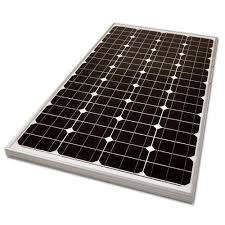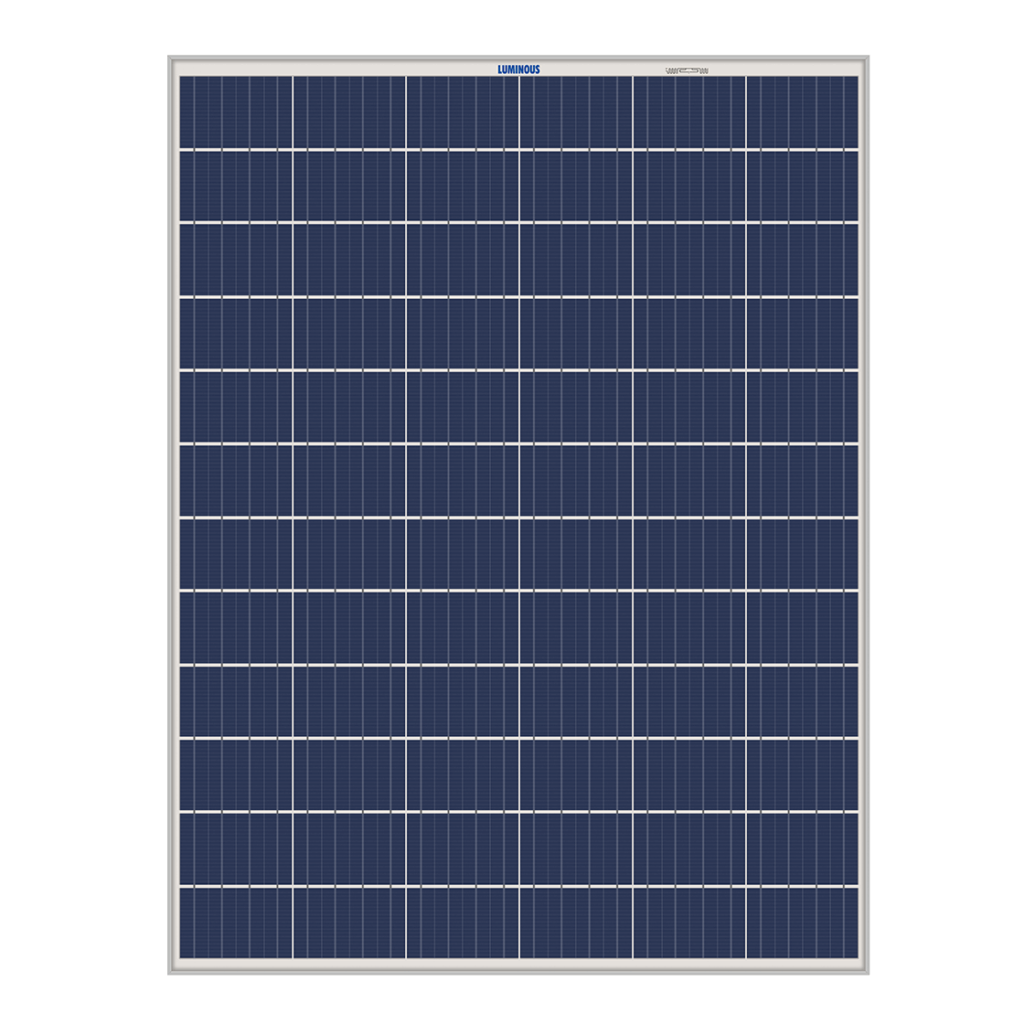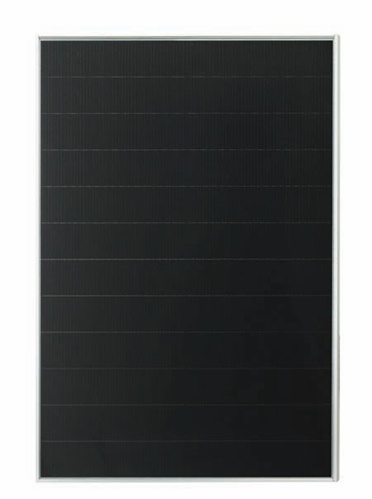Are you looking for the best solar panels in India? If yes, then you are in the right place. If you are planning to buy solar panels and are confused about how to select the best solar panels in India, then this article will surely help you out in choosing the best solar panels for your home. You must be thinking about which solar panels brand in India is best for you. In this article, we have done in-depth research to help you buy the best solar panels.
Many people in India have started using solar panels. Generally, people choose solar panels for any of the following three reasons- either they want to save money on their extremely high electricity bills or maybe they are living in an area where there is not enough electricity supply or they are environment-friendly and want to save the environment by choosing green energy. Whatever the reason is, the solution is always the same. Hence, It is also important that you choose a solar panel that can provide you with the maximum current on a low budget.
Considering some of the most important features like solar panel ratings, solar cell efficiency, power tolerance, temperature coefficient & manufacturer assurance into account, we have listed below the best solar panels in India.
Page Contents
Top 10 Best Solar Panels in India 2024
Choosing the best solar panel might be a little tricky as it involves a lot of technical knowledge. However, just to save you from this hectic task SolarClap has curated a list of the top 10 best solar panels in India. Below you will find this list with all important factors such as product warranty, dimensions, build quality, etc.
Here is the list of the top 10 best solar panels available online in India:
1. Microtek 150W/12V Polycrystalline Panel
Features:
- Optimal output over decades, with a very good low light response.
- Ideal for on-grid as well as off-grid applications.
- High-efficiency solar cells ensure high performance of solar module and create more power in peak hours.
- Excellent generation performance at a reasonable cost. Withstands hail, snow and ice storms.
- Undergoes rigorous quality control and more than 20 in-house test (Dh: Damp heat test. Tc: Thermal cycling test HF: Humidity freeze test).
- Heavy-duty anodized aluminium frames with pre-drilled holes for quick installation.
- It comes with 25 years performance warranty.
Technical Specifications
- Voltage: 12 V
- Watts: 150 watts
- Voltage at maximum power: 17.72 V
- Current at maximum power: 8.47 amps
- Module Efficiency: 14.91%
- Open circuit voltage: 22.47 V
- Short circuit current: 8.90 amps
- Weight: 12 Kg
- Number of solar cells: 36 units (9×4)
- Solar Cell Type: Multi Crystalline Silicon
- Length x Width x Thickness (LxWxT): 1495 x 665 x 35 (in mm)
2. Luminous 100W/12V Poly Panel
Features:
- Polycrystalline cells type Panel.
- Anti-reflective coating and back surface (BSF) for more light absorption.
- High strength light-weight aluminum frame design for high torsion resistance against winds and snow loads.
- Excellent Low light performance in low visibility in clouds, evening, and morning.
- 25 years performance warranty.
Technical Specifications
- Max. Output Power: 100 watts
- Voltage at Max Power (Vmax): 18 V
- Current at Max Power (imax): 5.56 amps
- Open Circuit Voltage (Voc): 22 V
- Short Circuit Current (isc): 6.06 amps
- Dimensions (W*H*D): 1035 x 670 x 34
3. Loom solar 125W/12V Mono Panel
Features:
- A-grade anti PID mono perk cells.
- Higher efficiency even in low light and cloudy weather.
- 25 years performance warranty.
- 10 years manufacturer warranty on manufacturing defects.
- Toughened unbreakable glass for outdoor use.
- Corrosion-resistant aluminium frame allowing the panels to last for decades and withstand high winds (2400 PA) & snow load (5400 PA).
Technical Specifications
- Wattage: 125 watts
- Voltage at max power: 20.4 V
- Current at max power: 6.13 amps
- Open circuit voltage: 23.8 V
- Short circuit current: 6.45 amps
- Number of solar cells: 36 units
- Weight: 8 Kg
- Dimensions (LxWxH): 1020 x 665 x 35 (in mm)
4. Su-Kam 100 Watt – 12 Volt Poly Panel
Features:
- Sukam Solar Panel 12v – 100watts
- 5 yrs Warranty – 25 Yrs Performance Warranty
- Save your Electrical Bill with Sukam Solar
- Non-toxic materials
- Recyclable and Minimal packaging
- Recyclable solar panels
- Material: Silicone
- Colour: White & Blue
Technical Specification:
- Wattage: 100 watt
- Voltage at max power: 20.4 V
- Current at max power: 6.13 amps
- Open circuit voltage: 23.8 V
- Short circuit current: 6.45 amps
- Number of solar cells: 36 units
- Weight: 8 Kg
- Dimensions (LxWxH): 66.6 x 3.5 x 100.6 (in cm)
5. Solodine 100 Watt – 12 Volt Poly Panel
Features:
- Superior Polycrystalline Solar Modules, 100 Watt, 24 Voltage and 5.1 Amp Current
- IEC and MNRE Approved; Readily Available
- Excellent Energy Generation in Weak Lights ;
- Stable Performance due to IP67 Waterproof Junction Box; 0-+5% Power
Technical Specifications:
- Wattage: 100 watt
- Voltage at max power: 20.4 V
- Current at max power: 6.13 amps
- Open circuit voltage: 23.8 V
- Short circuit current: 5.1 amps
- Number of solar cells: 36 units
- Weight: 8 Kg
- Dimensions (LxWxH): 66.6 x 3.5 x 100.6 (in cm)
6. Patanjali 100 Watt – 12 Volt Poly Panel
Features:
- Positive power tolerance up to 5W delivers high output reliability.
- Patanjali solar panel has a linear performance warranty for 25 Year.
- Patanjali Solar Panel Product warranty is 10 Years.
- Optimum Solar Panel efficiency is suitable for the ground-mounted solar system, rooftop solar system, solar street lighting, Solar Water Pumping for a utility application.
Technical Specifications:
- Wattage: 100 watt
- Voltage at max power: 20.4 V
- Current at max power: 6.13 amps
- Open circuit voltage: 23.8 V
- Short circuit current: 5.1 amps
- Number of solar cells: 36 units
- Weight: 8 Kg
- Dimensions (LxWxH): 66.6 x 3.5 x 100.6 (in cm)
7. Usha 100 Watt – 12 Volt Poly Panel
Features:
- Material: Poly Crystalline
- Warranty: 10-25 Years
- MNRE Certified
- Superior Module Efficiency as per International Benchmarks
- Glass with Anti Reflective Coating (Improves light transmission)
- Sustain Heavy Wind & Snow loads(2400 Pa & 5400 Pa)
- Excellent Performance in low light
Technical Specifications:
- Wattage: 100 watt
- Voltage at max power: 18.8 V
- Current at max power: 5.72 amps
- Open circuit voltage: 22.5 V
- Short circuit current: 5.81 amps
- Number of solar cells: 36 units
- Weight: 8.40 Kg
- Dimensions (LxWxH): 1060*660 (in mm)
8. Vikram Solar Poly & Mono PV Modules
Features:
- Excellent low light response
- Positive power output tolerance (+5 Wp)
- Linear Power Output Warranty up to 27 years (Prime, Ultima, Ultima Plus, Grand, Grand Ultima, Grand Ultima Plus)
- Vikram Solar Panels are certified for sand and dust test
9. Waaree ARUN Series (100Wp – 235Wp)
Features:
- Superior Module Efficiency as per International Benchmarks
- Positive Power Tolerance 0-5Wp(Module binned by current)
- PID Resistant with long term reliability
- Glass with Anti Reflective Coating (Improves light transmission)
- Salt Mist, Ammonia and Hail Resistant
- Sustain Heavy Wind & Snow loads (2400 Pa & 5400 Pa)
- IP 67 rated MC4 compatible connectors
- Excellent Performance in low light
10. EMMVEE 100Wp Poly Panel
Features:
- Performance Warranty: 90% up to 10 years and 80% up to 25 years
- Certifications: IEC 61215 Ed. 2,IEC 61730-1 & 2,IEC 617012011 (Severity-6)
- Resistance Against Hail: Max 24 mm with an impact speed of 83 km/h
Technical Specifications:
- Wattage: 100 watt
- Voltage at max power: 17.82 V
- Current at max power: 5.61 amps
- Open circuit voltage: 21.60 V
- Short circuit current: 5.98 amps
- Number of solar cells: 36 units
- Weight: 8 Kg
- Dimensions (LxWxH): 1055 x 665 (in mm)
Types of Solar Panels
Let’s get straight to the point. There are 3 types of solar panels.
1. Mono-Crystalline Solar Panels
Monocrystalline solar panels are the premium category of solar panels. Simply known as ‘Mono Panels‘ in industry, they are known to produce more current compared to polycrystalline solar panels. They are identified by the single flat black hue as shown in the image. Monocrystalline solar panels are more efficient compared to polycrystalline solar panels. Mono panels use single-crystal silicon.

2. Poly-Crystalline Solar Panels

Popularly known as ‘Poly Panels‘, these are low efficiency compared to Mono panels but on the other hand, they are also cheaper than mono panels. Poly panels have a blue hue as shown in the image. Poly panels have now become the dominant player in the residential solar panels market due to their affordability.
3. Thin Film Solar Panels
Thin Film is a new technology compared to mono & poly. Thin-Film solar panels have a solid black appearance as shown in the image. These panels have the lowest efficiency among the 3 categories and hence seek vast improvements in upcoming years. Thin-film solar panels are frameless and are sandwiched between glass which makes them flexible.

Solar Panels Buying Guide
The solar panel is the best alternative way to reduce your electricity bill. But don’t get too carried away by fancy advertising. There are other important factors that you need to consider before choosing solar panels for your home.
Here are the top tips for buying the best solar panels.
1. Manufacturer’s Warranty
When purchasing a solar panel, a warranty is the first and most basic factor that needs to be checked carefully. This might be something very easy for other products like a battery, an inverter, or a charge controller but in the case of solar panels, it’s a bit tricky.
Do You Know: the current produced by a solar panel decreases year after year. This is known as panel degradation and it’s a common phenomenon with any solar panel.
For solar panels, there are 2 types of warranties. The first one is the manufacturer’s warranty and the other one is the performance warranty. The manufacturer warranty as suggested by the name covers manufacturing defects, durability, and other environmental issues. Usually, the period of the manufacturer’s warranty is 5-15 years. This is very important as the solar panel is something that is kept outside hence it needs to be strong enough to tolerate outside issues such as a hailstorm. Do cross-check with your solar panel brand about this period.
Performance warranty, on the other hand, defines the panel degradation rate. Like we said earlier that solar panels’ performance degrades every year. Some manufacturers provide a performance warranty on the power-producing capacity within the next 25 years. This means solar panel performance will degrade year after year but it will not degrade beyond a certain percentage. Usually, this is around a 0.7% drop. Also, the smaller this percentage gets the better it is.
2. Solar Panel Ratings
This shows the capacity of a solar panel to generate current under certain conditions. Solar panel ratings are a useful parameter to compare solar cells. If a solar panel has more rating then it means that it would produce more current compared to any other panel with less rating.
However, if two solar panels have the same efficiency ratings, but different power ratings, then it is very much likely that the one with the greater power rating is bigger in size compared to the other one. Hence, it is necessary to consider other parameters as well.
3. Solar Panel Price
When buying solar panels, the most important factor is the price of solar panels. Everyone wants to buy solar panels at a substantially less price. However, buying less might have some limitations.
Fact: If you are getting something at a considerably lower price than the average, then you might get poor-quality components.
Always check things like components quality, warranty period, installation charge, etc. in detail. In this way, you will get what you pay for.
Do You Know: You can convert your existing inverter and battery into a solar inverter and battery. Check out more details here.
4. Solar Panel Certifications
Solar panel certification is very important especially when you are looking forward to getting a government subsidy on your installation. Always buy solar panels that are (Ministry of New and Renewable Energy) MNRE Approved to avail of government rebates. Only grid-connected projects can avail of government subsidies.
Also Read: Telangana Village Turns to Solar Energy for ‘100% of Its Needs’
Solar Panels Installation Guide
In Which Direction Should Solar Panels be Installed in India? And why?
When installing solar panels, one of the most valid questions to ask is how exactly can we decide in which direction our panel is supposed to be placed. The answer to this question varies from country to country.
The straight answer to this question for India is — South.
Why should solar panels in India be south-facing?
Our country India lies in the northern hemisphere so when the sun travels, it takes an elliptical trajectory going from east to west having an inclination towards the south, hence to get the maximum quantity of solar energy we have to place our panel accordingly. As you can see, be it summer or winter, the inclination is towards the south.
After the direction, the other important parameter is the tilt angle.
What should be the angle of solar panels in India?
The tilt angle is determined according to the latitude of your position. For example, if you are living in Cochin-Kerala, the tilt angle for your solar panel will be approx. 10-12 degrees. On the other hand, if you want to incorporate a panel in Delhi, your tilt angle will be almost 28-30 degrees.
Before incorporating a panel, we need to ensure that there is no tall obstacle coming in between the sun rays and the panel as the shadow of the obstacle will fall on the panel and will disintegrate its efficiency So the next time you think of installing a solar panel, take out your personal gizmo and check your orientation with respect to the direction and enjoy the benefits of free energy – The Solar Energy.
Check out all solar installation-related FAQs here in detail.
Conclusion
Solar energy is free, clean, and green energy. It doesn’t cause any harm to the environment. Besides, it also helps you reduce your electricity bill.
Also Read: Number of Solar Panels, Battery Bank & Inverter Load You Need for Your Home
Make a list of all important pointers and check all of them one at a time to buy the best solar panels in India.
If you are still not sure, always check out customer reviews on Amazon. There you will find plenty of information from real customers who have used these products.
Liked our blog on Top 10 Best Solar Panels in India 2024? Do share it with others.
Got Queries? Ask with #SolarClap

3kg solar
Is the Adani brand good for Bi facial Solar Panels?
it is not referenced in this article anywhere
We’ve harnessed a combination of manufacturing excellence and superior product performance to bring the world a lifetime of dependable and sustainable energy at huge savings. We have designed a unique solar panel for home that’s save your energy.
How is benefecial for all …village and city, minimum capacity solar?
1. What is a Solar Rooftop System?
2. What is a Solar Rooftop System with Storage facility?
3. What is a Grid Connected Solar Rooftop System ?
4. Where such plants can be installed ?
My brother suggested that I might enjoy this website.
He was 100% correct. This post certainly brightened my day.
You have no idea how much time I spent searching for this information.
Thanks.
I want to instal a solar panel of 3killowat for domestic purpose. What will be the total cost if I purchase it from Adani ଗ୍ରୁପ.
please advice me which solar panel was best one
best video
thanks
need 30kw at delhi
Thank You for sharing this informative blog.
Very good information provided thank you very much.
The demand for solar panels is continuously increasing all over the world. Electricity consumers are shutting down their electricity connections. Because the cost of solar panels is much less than the electricity bill. Many big companies are selling their solar panels in the market. But you find it difficult to find the best solar panel. The special thing about solar panels is the safety of your battery and inverter. Many company’s solar panels do not provide ampierer supply according to the standard of the battery. If a solar panel is giving more ampiyr supply than the capacity of the battery on its own, then the life of the battery ends. Adani Solar delivers the benefits of high performance in a low budget.
i want to get a rooftop solar panel at my house. Kindly suggest any company which can install it at dehradun(uttrakhand)
Emi finance par haf cüt penal
Chahiye9759463211